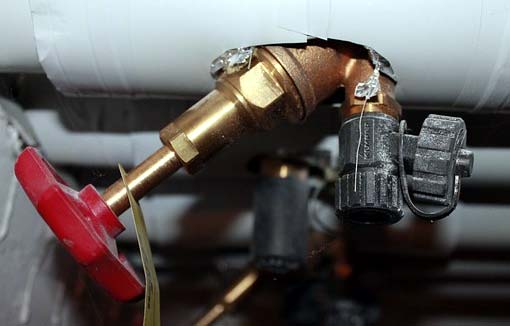As we enter the tail end of Winter, have you tended to your boiler at its most vulnerable? If not, don’t wait… follow these top ways to maintain your boiler before it’s too late. If your home’s heating system is not a boiler, you may be interested in reading Key Things to Look for in Your Home’s HVAC System.

As soon as temperatures drop, the boiler is used around the clock. You rely on it to keep your home comfortable and to prevent your pipes from freezing. If you want your boiler to survive the remaining weeks and stresses of Winter, be sure to follow these steps.
Protect the Pipes
Frozen pipes are very common in the winter. They can also be easily prevented by properly insulating them before temperatures fall. Pipe insulation is very inexpensive and can be purchased from any DIY store. Install the insulation as directed by the manufacturer.
It’s also recommended that you keep the heating running to prevent freezing. If the condensate pipe does freeze, try defrosting it with tepid water.
Bleed the Radiators
Trapped air in the central air system is a common problem. When the air gets trapped, it will make your boiler work harder to keep up. Bleeding the radiators is the best way to remove trapped air. Once the air has been released, the boiler will work more efficiently, and you’ll save money on your energy costs.
Monitor the Pressure
An efficient boiler should register between 1 and 1.5 bar on the pressure gauge. If the water pressure is too low, your boiler will work harder to make up for it. Low pressure is often caused by a water leak. High pressure may also cause problems with your boiler. Try bleeding the radiators to reduce the pressure or contact an HVAC service tech.
Power Flush
Many broiler problems are caused by a buildup of corrosion, rust, limescale, sludge, and oxide inside the system. The only way to remove this buildup is with a power flush. During this treatment, special chemicals are pushed through the different components of the boiler. These chemicals clean and flush out any debris inside the boiler.
Power flushing is one of the top ways to maintain your boiler. It extends the lifespan of the system. Noisy boilers, cloudy tap water, and cold radiators are just a few signs your boiler needs a power flush. After a power flush, your boiler should heat up faster and run more efficiently.
Test the System
Instead of waiting until winter arrives before turning on the boiler, try testing it out regularly during the warmer months. Allow the boiler to run for a few hours before temperatures drop outside. Make sure the system is running properly and check for gas leaks during this test.
Some experts even recommend turning on the boiler for 15-minute intervals once a month, even during the summer. This may help to prevent a breakdown once winter arrives.
Annual Maintenance
Another great way to maintain your boiler is to have it professionally inspected each year. During this routine appointment, your boiler will be fully serviced. This includes cleaning all the parts and inspecting the system for potential problems. Consider scheduling this service during spring or summer. It’s much easier to repair a boiler during the off-season than in the middle of winter.
By taking these steps to prepare your boiler for colder weather, you will ensure your system runs efficiently even during the coldest days of the year.
Performing regular maintenance will not only keep your boiler running for longer, but it will also save you money. Ask a local tradesman for advice if you have had boiler issues in the past.



